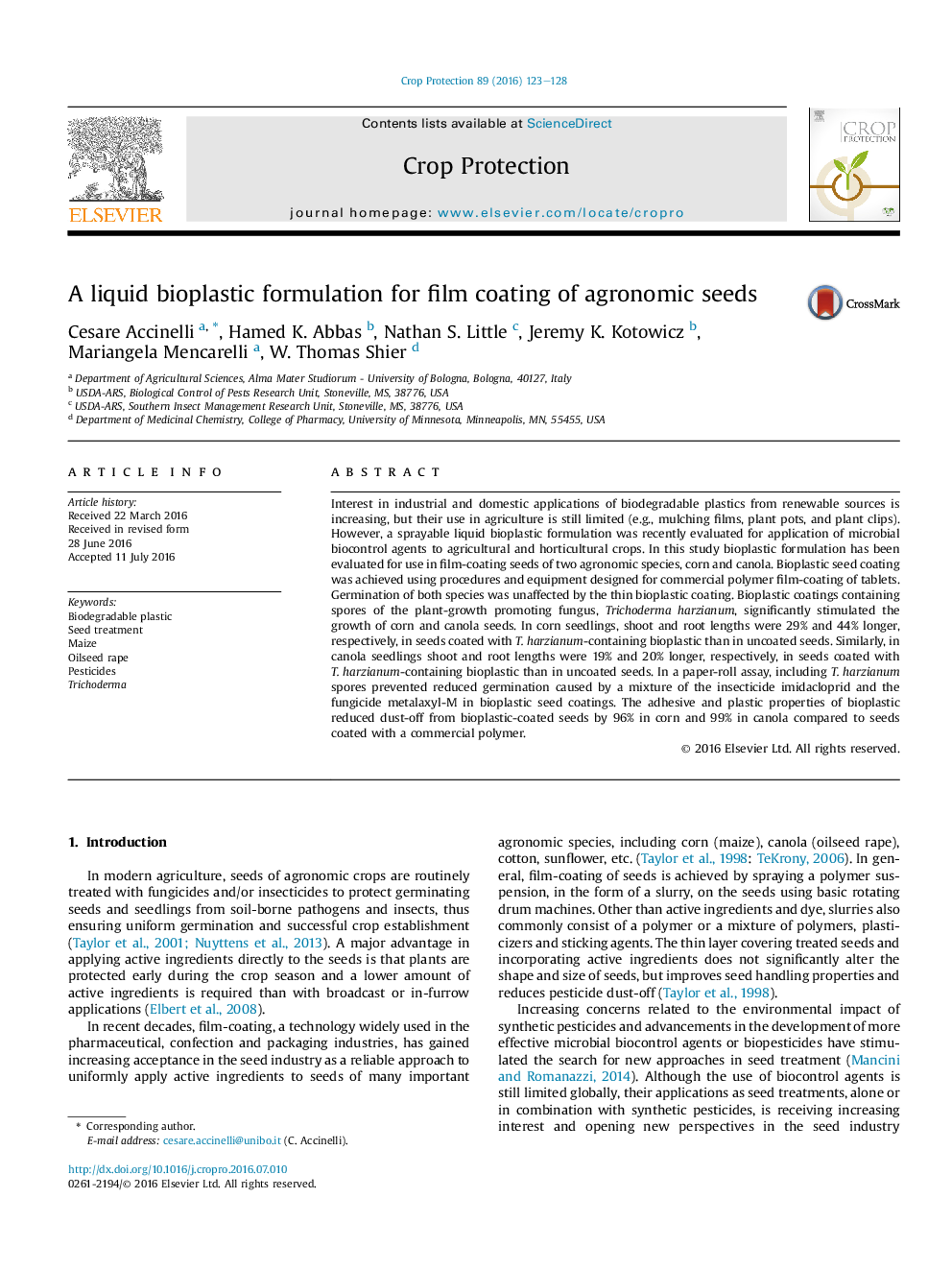| Article ID | Journal | Published Year | Pages | File Type |
|---|---|---|---|---|
| 6373162 | Crop Protection | 2016 | 6 Pages |
Abstract
Interest in industrial and domestic applications of biodegradable plastics from renewable sources is increasing, but their use in agriculture is still limited (e.g., mulching films, plant pots, and plant clips). However, a sprayable liquid bioplastic formulation was recently evaluated for application of microbial biocontrol agents to agricultural and horticultural crops. In this study bioplastic formulation has been evaluated for use in film-coating seeds of two agronomic species, corn and canola. Bioplastic seed coating was achieved using procedures and equipment designed for commercial polymer film-coating of tablets. Germination of both species was unaffected by the thin bioplastic coating. Bioplastic coatings containing spores of the plant-growth promoting fungus, Trichoderma harzianum, significantly stimulated the growth of corn and canola seeds. In corn seedlings, shoot and root lengths were 29% and 44% longer, respectively, in seeds coated with T. harzianum-containing bioplastic than in uncoated seeds. Similarly, in canola seedlings shoot and root lengths were 19% and 20% longer, respectively, in seeds coated with T. harzianum-containing bioplastic than in uncoated seeds. In a paper-roll assay, including T. harzianum spores prevented reduced germination caused by a mixture of the insecticide imidacloprid and the fungicide metalaxyl-M in bioplastic seed coatings. The adhesive and plastic properties of bioplastic reduced dust-off from bioplastic-coated seeds by 96% in corn and 99% in canola compared to seeds coated with a commercial polymer.
Related Topics
Life Sciences
Agricultural and Biological Sciences
Agronomy and Crop Science
Authors
Cesare Accinelli, Hamed K. Abbas, Nathan S. Little, Jeremy K. Kotowicz, Mariangela Mencarelli, W. Thomas Shier,
